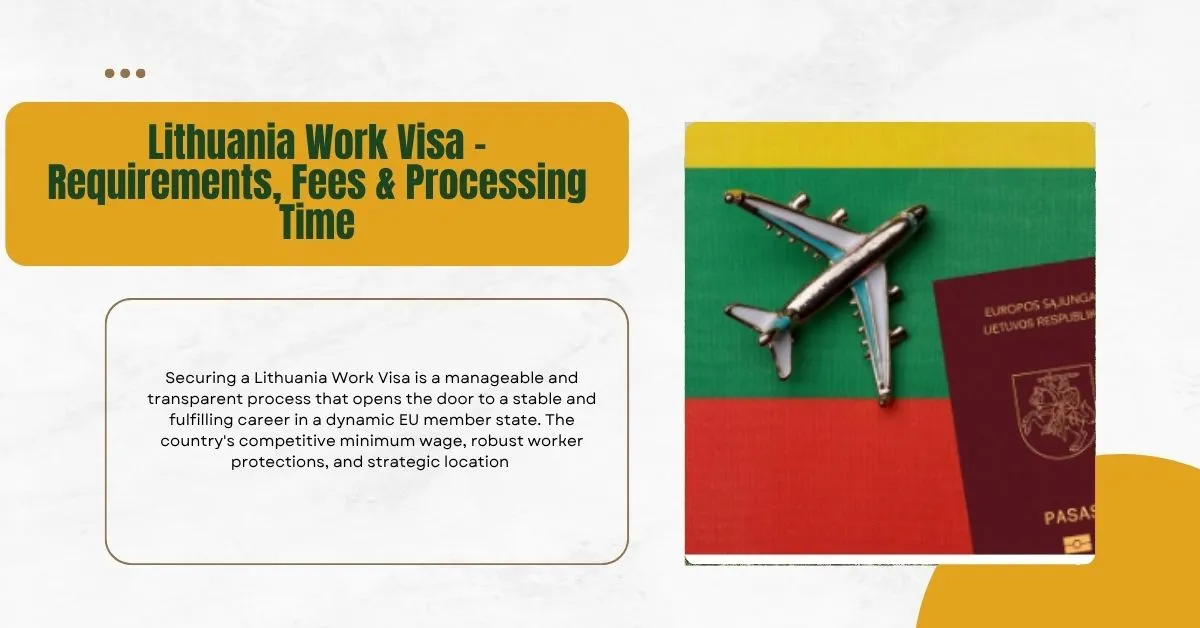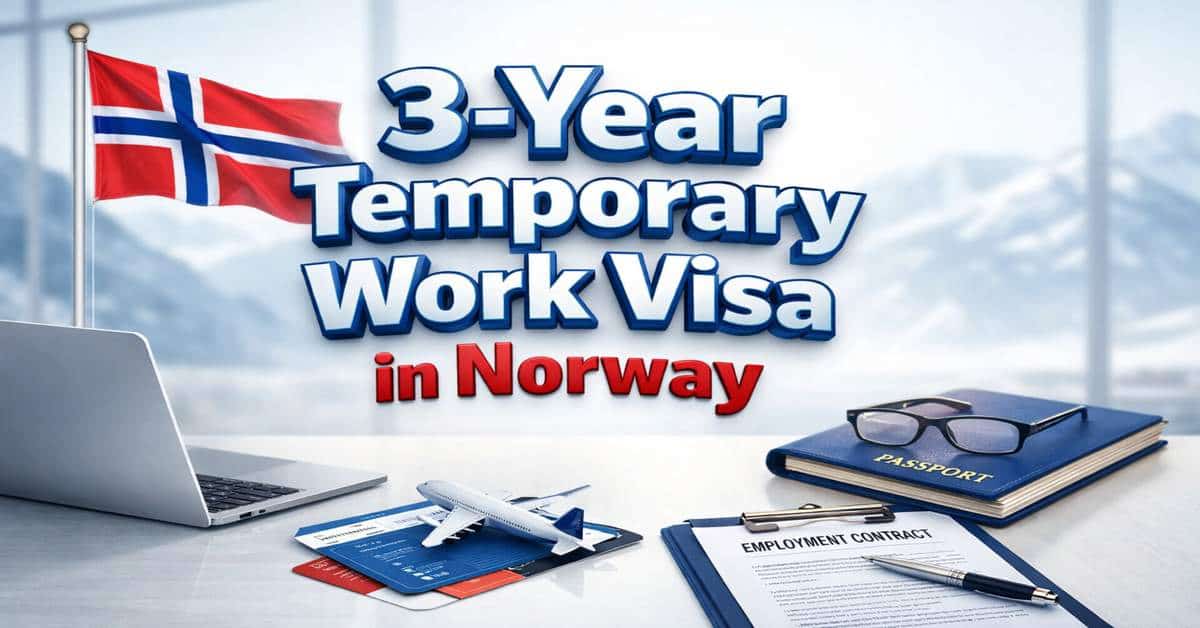Germany Job Seekers VISA 2026 – Application Process

The Germany Job Seeker Visa allows skilled professionals from non-EU countries to enter Germany and search for employment for up to six months. Applicants must hold recognized qualifications, sufficient funds to support themselves, and valid health insurance. Once employed, they can convert the visa into a work permit or EU Blue Card.
Salaries in Germany vary by sector, with average monthly earnings around €3,500, while professionals in IT, engineering, and healthcare can earn between €4,500 and €7,500 per month. This visa provides an excellent opportunity for international talent to explore Germany’s thriving job market and secure long-term employment.
What is the German Job Seeker Visa?
The German Job Seeker Visa is a temporary residence permit that allows highly skilled non-EU professionals to enter Germany and search for a job. If the applicant finds employment within six months, they can convert the visa into a German work permit or EU Blue Card.
Benefits of Germany Job VISA
- Stay in Germany for six months to search for a job.
- Apply for a work visa without leaving Germany if you secure employment.
- No job offer is required before arrival.
- Access to Germany’s robust job market across various industries.
Eligibility Criteria for Germany Job Seekers VISA
To qualify for a German Job Seeker Visa, applicants must meet the following requirements:
1. Educational Qualification
- Must have a bachelor’s or master’s degree recognized in Germany.
- If your degree was obtained outside Germany, check its recognition on Anabin (the German degree equivalency database).
2. Work Experience
- Minimum five years of professional experience in your field of study.
3. Financial Proof
- Proof of sufficient funds to support yourself in Germany (approx. €1,200 per month or a blocked account (Sperrkonto) with €7,200 – €10,332).
4. Health Insurance
- Must have valid health insurance coverage for the entire duration of your stay.
5. Language Requirement
- While German language proficiency is not mandatory, basic German (A2-B1 level) can improve your job prospects. Certain professions (e.g., healthcare, education) require B2 level proficiency.
How to Apply for Germany Job Seeker’s Visa:
Follow these steps to apply for the Job Seeker Visa:
Step 1: Gather Required Documents
Prepare the following documents before applying:
- Completed visa application form
- Valid passport (issued within the last 10 years and valid for at least 12 months)
- Recent biometric passport-size photos
- Degree certificate & transcripts (with recognition proof from Anabin)
- Proof of work experience (employment letters, contracts, references)
- Proof of financial resources (blocked account statement or sponsorship letter)
- Health insurance certificate
- Cover letter (explaining your career plans and job search strategy in Germany)
- Updated CV (preferably in the Europass format)
Step 2: Book an Appointment at the German Embassy
- Schedule a visa appointment at the nearest German consulate or embassy in your home country.
- The visa application fee is €75 (non-refundable).
Step 3: Attend the Visa Interview
- Be prepared to discuss your career background, job market knowledge, and plans in Germany.
- Demonstrating awareness of German industries, salary expectations, and networking strategies can improve your chances.
Step 4: Wait for Visa Approval
- Processing time varies but typically takes 4-8 weeks.
- Upon approval, you can enter Germany and start your job search.
Can You Work in Germany on a Job Seeker Visa?
No, a Job Seeker Visa does not permit full-time work. However, you may be allowed to work for up to 10 hours per week in a trial role if requested by an employer.
How to Convert a Job Seeker Visa into a Work Visa?
Once you receive a job offer, follow these steps to convert your Job Seeker Visa into a work permit:
- Obtain an employment contract from your employer.
- Apply for either:
- EU Blue Card (if your salary exceeds €58,400/year or €45,552/year in shortage occupations).
- German Work Permit (if you meet employment and qualification criteria).
- Submit the application at the local Foreigners’ Office (Ausländerbehörde).
Job Market Outlook: Finding a Job in Germany
Germany has a high demand for skilled professionals, particularly in the following sectors:
In-Demand Job Sectors:
- Engineering (Mechanical, Electrical, Civil, Automotive, IT)
- Healthcare (Doctors, Nurses, Caregivers)
- Information Technology (Software Developers, Data Analysts, Cybersecurity Experts)
- Finance & Accounting
- Education & Research
Best Websites for Job Searches in Germany:
- Federal Employment Agency (arbeitsagentur.de)
- Make It in Germany (make-it-in-germany.com)
- LinkedIn, StepStone, Indeed Germany
- Company Career Pages (Siemens, Volkswagen, SAP, BMW, etc.)
Tips for Job Seekers:
- Start networking on LinkedIn & Xing (Germany’s professional network).
- Apply for jobs before arriving in Germany to secure interviews in advance.
- Tailor your CV and cover letter according to German standards.
- Learn basic German phrases to improve employer engagement.
Conclusion:
The German Job Seeker Visa is an excellent opportunity for skilled professionals looking to establish a career in Germany. By preparing thoroughly, networking strategically, and understanding the German job market, you can maximize your chances of securing employment and transitioning to a work visa.
Frequently Asked Questions:
Can the Job Seeker Visa be extended?
No, the Job Seeker Visa is non-extendable. If you fail to find a job within six months, you must return to your home country and reapply.
Is German language proficiency required?
Not necessarily, but knowing German (A2-B1 level) significantly improves job prospects in non-tech industries.
Is Germany welcoming to foreign workers?
Yes! Germany actively recruits international talent and recently introduced the Opportunity Card (Chancenkarte), a new points-based work visa.



